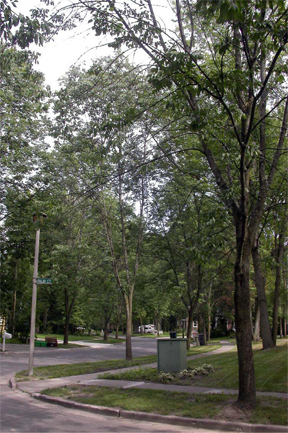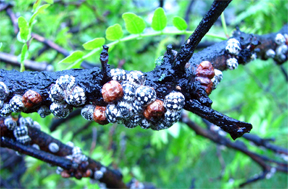Lecanium scale and other soft scale insects
Editor’s note: This article is from the archives of the MSU Crop Advisory Team Alerts. Check the label of any pesticide referenced to ensure your use is included.
In many parts of the state, we are seeing an outbreak of Lecanium scale on hardwood trees. Many species of hardwoods are susceptible, but the most commonly infested tree types are oak, maple and honeylocust. The first clue in urban areas is sticky droplets on cars parked under infested trees. These tiny drops of honeydew produced by scale insects as a way to excrete excess sugar may become very hard and difficult to remove when they dry. The outbreak is a peak year (or several years) of a five- to 10- year cycle driven by parasites and predators. Although Lecanium scale is mostly a nuisance problem, heavy populations sometimes persists for years, particularly where natural enemies are suppressed by insecticide sprays. In parts of Saginaw and Midland counties, silver maple and honeylocust trees are noticeably thin due to many years of scale infestation.



 Print
Print Email
Email




